The Quest | The Ideals
The avatars of today are great ideas which come to reform the world. And the idea of the day is social equality.
A living philosophy must answer the problems of today.
Good life is more important possibly than what all the Assemblies and Parliaments do. Planning of towns and country side is equally important to make them good to look at, to make them yield as much as they can and, consequently, these subjects which you will consider are of basic importance for the growth of a country. I hope you will look at them from this larger point of view and lay down, as far as possible, objectives which you can achieve year by year, and not make vague, pious declarations of your wishes.
So I have filled the picture gallery of my mind. There are some portraits, vivid, life-like, looking down upon me and reminding me of some of life’s high points-and yet it seems so long ago and like. some story I have read. There are many other pictures round which are wrapped memories of old comradeship and the friendship that sweetens life. And there are innumerable pictures of the mass-In dian men and women and children, all crowded together, looking up at me; and I trying to fathom what lies behind those thousands of eyes of theirs.
So I like this idea of trying to look after great cities, trying to raise their level, of making them beautiful cities, not only with beautiful buildings, but with healthy, efficient human beings, or loving people, cooperating with each other and not trying to knock each other down and exploit each other and make each other miserable. That is the ideal of the great city that I should like to have and I like to work for.
The sign of any living thing lies in its capacity to grow and change. The moment its growth is stopped it is dead.
I cannot impose my ideals on you. If you want to make your life worthwhile you will have to decide for yourself what your life philosophy should be.
This argument leads to the old Vedantic conception that every thing, whether sentient or insentient, finds a place in the organic whole: that everything has a spark of what might be called the divine impulse or the basic energy or life force which pervades the Universe.
Whether there is any such thing as human freedom in the philosophic sense or whether there is only an automatic determin ism, I do not know. A very great deal appears certainly to be determined by the past complex of events which bear down and often overwhelm the individual. Possibly even the inner urge that he experiences, that apparent exercise of free will, is itself conditioned. As Schopenhauer says, ‘A man can do what he will, but not will as he will. A belief in an absolute determinism seems to me to lead inevitably to complete inaction, to death in life. All my sense of life rebels against it though of course that very rebellion may itself have been conditioned by previous events.
How amazing is this spirit of man! In spite of innumerable failings, man, throughout the ages, has sacrificed his life and all he held dear for an ideal, for truth, for faith, for country and honour. That ideal may change, but that capacity for self-sacrifice continues, and, because of that, much may be forgiven to man, and it is impossible to lose hope for him.
India is an old country and I have always thought of India as the offspring of mountains and seas, the Himalayas and the Indian Ocean embracing her on two sides. So I have always thought of India not as a country isolated from the rest of the world but a country eminently suited for the closest and widest intercourse with the other countries of the world.
I wandered over the Himalayas, which are closely connected with old myth and legend, and which have influenced so much our thought and literature. My love of the mountains and my kinship with Kashmir especially drew me to them, and I saw there not only the life and vigour and beauty of the present, but also the memoried loveliness of ages past. The mighty rivers of India that flow from this great mountain barrier into the plains of India attract me and remind me of innumerable phases of our history.
All of us, I suppose, have varying pictures of our native land and no two persons will think exactly alike.
If you were with me, I would love to talk to you about this beautiful world of ours, about flowers and trees and birds and animals and stars and mountains and glaciers and all the other wonderful things that surround us in this world. We have all this beauty all round us and yet we, who are grown-ups, often forget about it and lose ourselves in our arguments or our quarrels. We sit in our offices and imagine that we are doing very important work.
I am a child of the mountains of the North, the Himalayas. When I come to the South, here, to this beautiful part of India, I feel perfectly at home because I see friendship and affection in the eyes of all the people, and immediately I feel, not only intellectually but emotionally as if I was in my own home. For, indeed, every part of India is our home, whether we happen to be born in one particular corner of it, or another….India is very ancient and India is also very young For India has known the art of becoming young again and again, in spite of her age rejuvenating herself, period after period.
What do I like most? Difficult to say. I like mountains and glaciers very much, and running water in the hills. Yes, I like lettuce salad and good conversation and animals and flowers and swimming and riding.
Promise of the Coming Day
Every day is a new beginning for us, every moment.
The moon, ever a companion to me in prison, has grown more friendly with closer acquaintance, a reminder of the loveliness of this world, of the waxing and waning of life, of light following darkness, of death and resurrection following each other in inter minable succession. Ever changing, yet ever the same, I have watched it in its different phases and its many moods in the evening, as the shadows lengthen, in the still hours of the night, and when the breath and whisper of dawn bring promise of the coming day.
Build for the present, by all means, but build also for the future with schools and hospitals and playgrounds, markets and roads. All these things do not cost much except a little extra labour and thought.
We want to spend large sums of money on education. On the other hand, we want to spend money on wealth-producing activities, too, so that we may have more money to spend on education. One has to balance the two. But in regard to education believe that, at the primary level, the progress made has been considerable. It is less than what we wanted. But it gives me enormous pleasure to go all over India and to see children in new schools. They are a different generation from the others. You can see the change in them.
In Search
I go about in the country like a pilgrim who seldom rests anywhere. I wander about in quest of something which is not entirely clear in my mind.
Despite the woeful accumulations of superstition and degrading custom that had clung to her and borne her down, she had never wholly forgotten the inspiration that some of the wisest of her children, at the dawn of history, had given her in the Upanishads. Their keen minds, ever restless and ever striving and exploring, had not sought refuge in blind dogma or grown complacent in the routine observance of dead forms or ritual and creed. They had demanded not a personal relief from suffering in the present or a place in a paradise to come, but light and understanding.
After all, it is the city which is a fine sphere of culture and civilization. I want to take the cultural advantages of the city. I like to take many of the cultural advantages that the city life provides and I like some of the things which the village stands for. like the city to approach the village and the village to approach the city..
I have been one of a mass, moving with it, swaying it occasionally, being influenced by it; and yet, like the other units as individual, apart from the others, living my separate life in the heart of the crowd.
I have loved life and it attracts me still and, in my own way, I seck to experience it, though many invisible barriers have grown up which surround me; but that very desire leads me to play with life, to peep over its edges, not to be a slave to it, so that we may value. each other all the more.
And yet, even now, the call of action stirs strange depths within me. and often a brief tussle with thought. I want to experience again “that lovely impulse of delight which turns to risk and danger and faces and mocks at death.
The years I have spent in prison; sitting alone, wrapped in my thoughts, how many seasons I have seen go by, following each other into oblivion! How many moons I have watched wax and wane, and the pageant of the stars moving along inexorably and majestically! How many yesterdays of my youth lie buried here; and sometimes 1 see the ghosts of these dead yesterdays rise up, bringing poignant memories, and whispering to me: “Was it worth while?” There is no hesitation about the answer.
While there has been this conquest of external conditions, there is at the same time the strange spectacle of a lack of moral fibre and of self-control in man as a whole. Conquering the physical world, he fails to conquer himself.
To suppress the individual is bad and stops growth, to allow individualism full play is to have anarchy.
No one, however great he may be, should be above criticism. But, when criticism becomes a mere refuge for inaction there is something wrong with it
Sometimes doubts assail me whether I reach the mind of the people, but still I carry on, not because I have a passion for discomfort or a passion for self-sacrifice but because of the unease which is in my mind. It is my mind that troubles me. The sights that I see around me during my wanderings, the sight of misery and unhappiness, trouble me. So it becomes difficult for me to rest even though I may seek that rest. You know we have to carry on till we reach our goal. And often I feel a certain measure of dissatisfaction at the inactive character of much of the work that we do, of the destructive character of our work. And I envy you who are in charge of the great city and who are doing a great deal of constructive work for the city. It is an enviable work.
“Lead me from the unreal to the real, lead me from darkness to light, lead me from death to immortality. In the most famous of the prayers recited daily even today by millions, the gayatri mantra, the call is for knowledge, for enlightenment.
At the dawn of history India started on her unending quest, and trackless centuries are filled with her striving and the grandeur of her successes and her failures. Through good and ill fortune alike she has never lost sight of that quest or forgotten the ideals which have strength.
To the people of India, we appeal to join us with faith and confidence in this great adventure of building a new India.


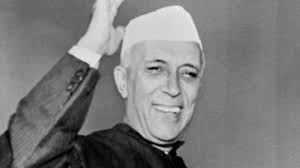
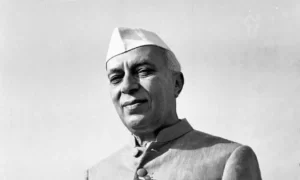
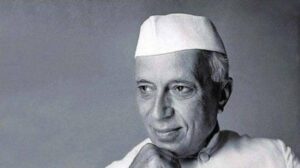
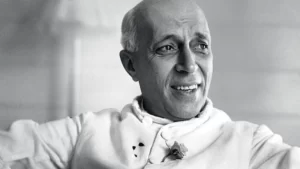
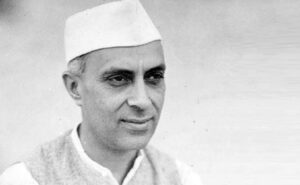
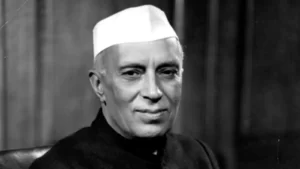
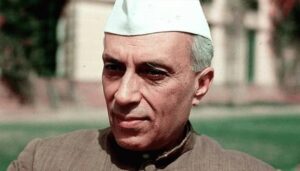
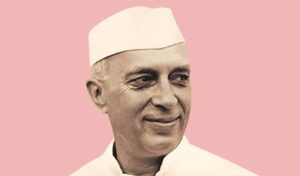

One Response